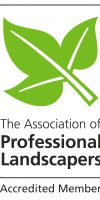Menu

Many of use believe it is a complicated process and perhaps would not fit in with our ideas of what we want our gardens to look like, however, you can adopt as many or as few ideas that suit you. By just adding a couple of extra features you can still do your bit to encourage the appearance of not only bees, birds, butterflies, ladybirds and dragonflies, but also small mammals such as hedgehogs.
Have you thought of buying a bird table or asking advice at your local garden centre about the type of nectar rich plants and shrubs that attract birds and bees? Find out about shrubs that bear berries during the winter months and choose perennials such as sedum and yarrow that carry seed heads after flowering as these can provide a vital food source for birds and insects. Fed up with slugs and snails eating your tender young plants? Make your garden hedgehog friendly and you never need worry again as hedgehogs can eat up to 200grams of insects in one night!
Hedgehogs as their names suggests, live mostly in hedges and in the last decade, their numbers have dropped by an all time low of 25%. There are a number of reasons for this including the fact we tend to put up fences rather than grow hedges in our gardens. You can provide shelter by creating your own natural woodpile if you don’t keep logs for an open fire or even pile up your autumn leaves in a quiet corner of the garden, under which the hedgehogs will happily burrow. There you have it, nothing really complicated is there? So why not make it one of your New Year resolutions to do your bit to encourage extra wildlife into your garden?
For more information about the benefits of gardening for wildlife and how to do it, try out article here.
Find our advice on feeding the birds here.
If you’d like to know more about wildflower turf, try this article.
If you’re thinking of installing a pond, find our advice here.
Hambrooks garden design, landscaping & garden maintenance throughout Hampshire for over 50 years.

